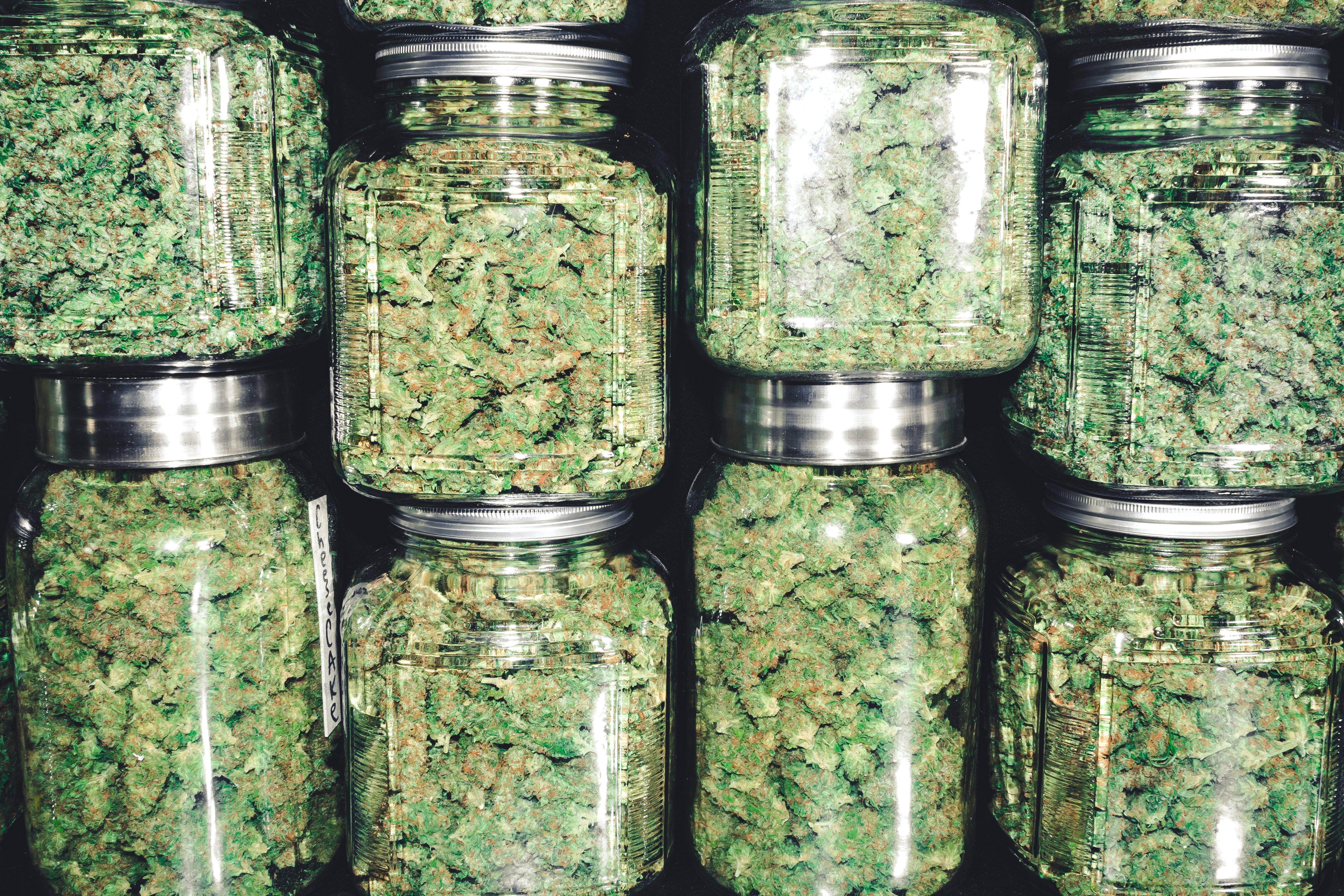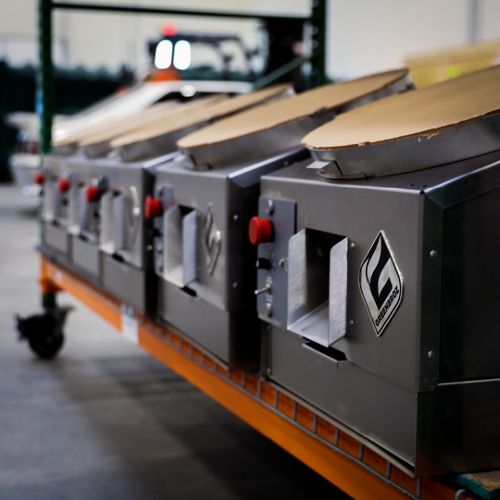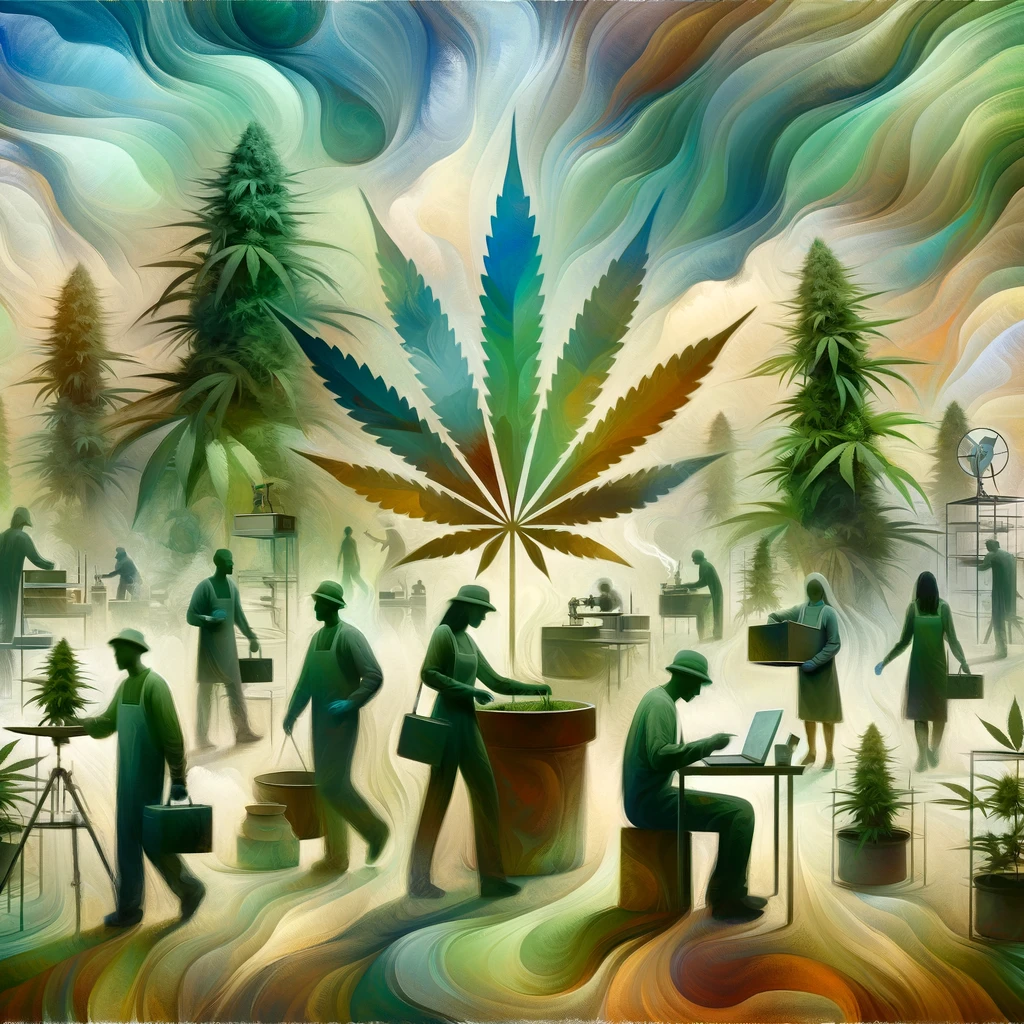The Ultimate Guide to Cannabis Equipment Maintenance
In the world of cannabis cultivation, your equipment is your best friend. Keeping it in pristine condition isn't just about prolonging its lifespan;...

Curing weed is an essential step in preserving the flavor, aroma, and shelf life of you cannabis. After you harvest your cannabis, and decide whether to dry or wet trim your cannabis plants its time to dry and cure. Lets get into the why and how to cure weed.
Cannabis curing stops the natural breakdown of cannabinoids in the buds and preserves the levels of THC and terpenes. Its an essential marijuana processing step that lets your buds stay fresher for longer. Once properly cured growers can store there cannabis for years with minimal THC loss.
Growers cure weed to maintain there buds potency and increase flavor, while protecting against bacteria. This processes is essential for the creating shelf stable and long lasting products.
Curing weed properly, optimizes the aroma, flavor, and lifespan of the product. Cannabis maintains THC levels longer when cured. While quick and hot cure degrades terpenes and the smoking experience.
The cannabis curing process eliminates these potentially harmful and damaging bacteria. High moisture levels and humidity are breeding grounds for harmful molds.
THC degrades at around 6% year over year while in storage. Properly cured marijuana will degrade less then uncured weed.
| Cannabis flower in a curing jar |
You cure cannabis over a few weeks by monitoring humidity and temperatures of the curing containers. This is a numbers game and about balancing moisture levels to maintain a mold free environment. After curing you can store your cannabis for up to 2 years.
You'll need a few items to cure weed properly and effectively.
Curing cannabis is a numbers game, here are the key curing factors to remember.
Cannabis buds must be trimmed and dried before the curing process begins to reduce bacteria. The drying process takes around 2 to 10 days and many experienced growers prefer to trim their buds after their initial drying period. Pay close attention to the drying process as doing it correctly will result in better flavor profiles.
Some states require cannabis to be dried to certain humidity levels prior to resell, these states are:
It's critical to keep these things in mind when drying and curing if you plan on reselling.
Hang drying cannabis from clothes line or wires is by far the most common way cannabis is dried. This practice allows the buds to absorb as much nutrients from the branch as possible. It also allows the buds to take on the classic cannabis flower shape.
Tray drying cannabis is more space efficient and can be done with or without the buds on the stem. However, this technique deforms the buds as they dry under their own weight.
When it is time to cure the buds, growers then trim the buds from their branches and place them in containers with controlled airflow. Both processes require a cool, dark environment for optimal results.
To test if the amount of moisture in buds are ready for curing, shake the a jar after filling it with buds. If the buds rattle around freely, they are likely ready for curing. If shaking the jar makes the buds clump together, the exterior of the buds may need to dry further.
The perfect weed curing room is dry between 60 and 70 degrees, dark, and well ventilated. Avoid light exposure during the curing process to prevent degradation of THC and terpenes. Storing the cannabis in a dry room that has proper air circulation is key. Access to fresh air and a maintained room temperature prevents mold while the dryness reduces curing time.
Place the marijuana flower in air-tight containers filled to 75% capacity with a small hygrometer or humidity pack. This air tight container reduces the chances of mold and mildew during the drying and curing process. While the hygrometer or humidity pack will let you monitor the levels inside the curing container.
Jar curing cannabis is the most common way to dry cannabis and here's a detailed review of weed cure jars and bags. Other tools do exist like specialty cannabis curing machines and containers that may speed up the curing process. These tend to be more expensive for small and home growers than curing cannabis in jars.
Date and label your containers wit the strain, temperature, and humidity levels. This is a great way to document and control the curing process.
Ensure the humidity levels inside the containers are between 45% and 65% while temperatures are below 21°C/69.8°F. High humidity and temperature levels encourages bacteria to grow which breaks down the buds and reduces flavor profiles.
If the smell of ammonia emerges from the curing jars or containers its a sign that bacteria may be forming. To address this you must do the following things:
Open the curing containers daily for 2 to 3 minutes during the first week. This is called 'burping' and is an essential part of the cannabis curing process. Its done manually by opening the curing jars, or automatically with high tech curing containers.
After the first week you can burp your buds every few days.
Another method is to leave the containers or jars of cannabis open for longer periods. Experienced growers suggest leaving the curing containers open for periods of around three hours.
After three weeks in a carefully controlled environment, many growers will have produced fully cured buds. Different strains require different conditions and curing periods. Do your research before attempting to dry and cure specific strains.
| Cannabis flower that is almost ready to be trimmed |
Curing your weed has no direct effect on potency, although it will maintain your THC levels longer. Cannabinoids continue to develop while the buds are receiving nutrients from the branches. This is why expert growers leave there buds on the branches longer while drying before curing.
Curing cannabis can take anywhere from three weeks to six months. The time it takes to properly cure cannabis can vary greatly depending upon the environment in which it processes. Humidity levels, temperature, burping method, and curing containers all play a part in the curing process length.
If the curing containers and room are fluctuating in temperature and humidity, curing can take much longer. Experienced growers take several steps to control these factors and get the best final product possible. In many instances, a slow cure is a smart decision as it increases flavors and aromas.
A longer curing length will drastically increase flavor and smokeability of your cannabis. Short speedy cures may seem like a good way to get your product on shelves. But rushing the curing process will degrade your flowers quality.
Novice growers can manage individually ‘burping’ each jar they are curing. For a larger commercial grow, it can become extremely tedious. This is why many experienced growers harvesting large amounts of cannabis buds choose to automate their curing method.
Auto curing buckets are a great way to start curing large amounts of weed bud. Typically these are food grade, bpa-free, five gallon buckets with gamma seal lids. Each bucket can hold approximately two pounds of flower, drastically increasing harvesting capacity.
Modifying the buckets for auto-curing requires initial effort, but significantly reduces the work required during the curing process.
Growers must drill holes in the bucket and insert silicone tubing capped with check valves to create intake and exhaust functions. An air pump regulates fresh air during the curing process, replacing the manual act of 'burping'.
Large scale growers automate the curing process with professionally constructed technologies. Purpose built for their grow and designed to provide the same air flow control as auto-curing buckets.
Never miss a blog posting or exclusive shop deal!

In the world of cannabis cultivation, your equipment is your best friend. Keeping it in pristine condition isn't just about prolonging its lifespan;...

In Humboldt County's green expanses, Jonah Carrington is changing the cannabis game with the GreenBroz Model G Precision Grinder. From his Santa...

Cannabis has come a long way, from black market only to decriminalization, and being legalized in one form or another is just about every state. The...